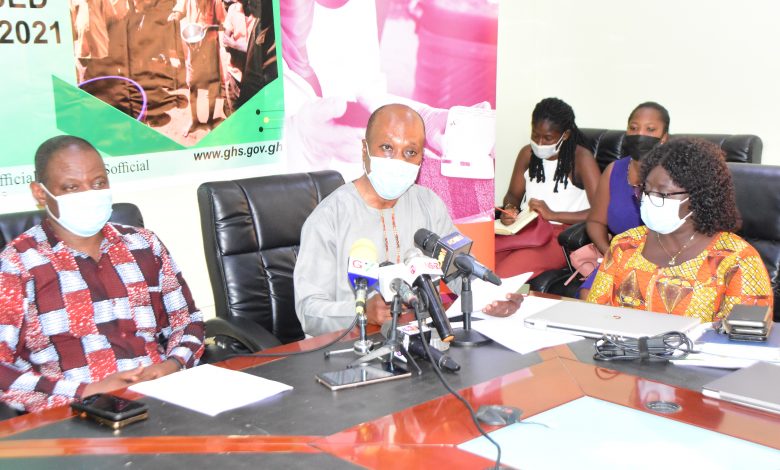
A total of 6,597,027 school-age children in 151 districts across the country are to be dewormed by November 10, 2021.
The deworming exercise which is targeted at treating children in 22,938 schools is being undertaken to improve the health of children to lessen absenteeism and improve academic performance as well as the quality of basic education in Ghana.
Jointly being carried by the Ghana Health Service (GHS) and the Ghana Education Service (GES), the exercise which began on November 1, 2021 is expected to end on November 10, 2021. It would enhance children’s immunity, productivity and optimum growth in school.
Dr Kofi Asemanyi-Mensah, Programme Manager, Neglected Tropical Disease (NTD) Programme briefing the press in Accra yesterday indicated that the National School-based deworming exercise was the most cost-effective way for delivering regular deworming medicines to children on a large scale.
He said that children who were out of school were to be mobilised and sent to near-by schools to be dewormed, adding that “teachers would be responsible for delivering the deworming medicines to the school-age children at their respective schools with assistance from local health workers.”
DrAsemanyi-Mensah stressed that Praziquantel (600mg) and Albendazole (400mg) would be administered to each child under the strict supervision of teachers and health workers after dosage had been checked by height.
Also emphasising the need for the drugs to be taken after meals, he charged teachers to ensure that the medicines were administered to the kids after they had eaten and urged parents and guardians to ensure their wards had eaten before going to school.
“All children would be required to eat before taking the medication. Preferably, medicines should be administered immediately after the first break or after children have been served with food by the programme to give the assurance that all children have eaten,” he said.
“I urge all parents, guardians and care givers to ensure their children eat before going to school,” he added.
DrAsemanyi-Mensahassured that the drugs were safe for useand had little to no discomforts, adding that every school had been linked to a health facility which would manage any adverse drug effect for free.
He also stated that the COVID-19 protocols would be observed duringthe administration of drugs.
Mrs Nana Esi Inkoom, Director, School Health Education of GES, who represented the Director General of the GES indicated that while trainings had been given to teachers across the country, the consents of parents and guardians had also been sort to deworm their kids.
She said that the administering of the deworming drugs would deal with parasites such as schistosomes, round worms and tape worms among others.
For this reason, Mrs Inkoom stated the exercise was a worthy course which needed the support of all as worm infections had a lot of detrimental health effects.
For his part, Dr Patrick Kuma-Aboagye, Director General of GHS noted that the World Health Organisation (WHO) had estimated that more than one billion people worldwide were affected with intestinal worms with 880 million school-aged children being in need of treatment.
He stated that these infections were contracted through “infested water bodies or soil contaminated with faecal matter resulting in schistosomiasis or soil helminthiaeses infection and have its highest prevalence in school-age children, which is 5-14 years.”
He therefore reiterated that deworming would “improve health and school participation for both treated and untreated school-age children.”
BY ABIGAIL ARTHUR







